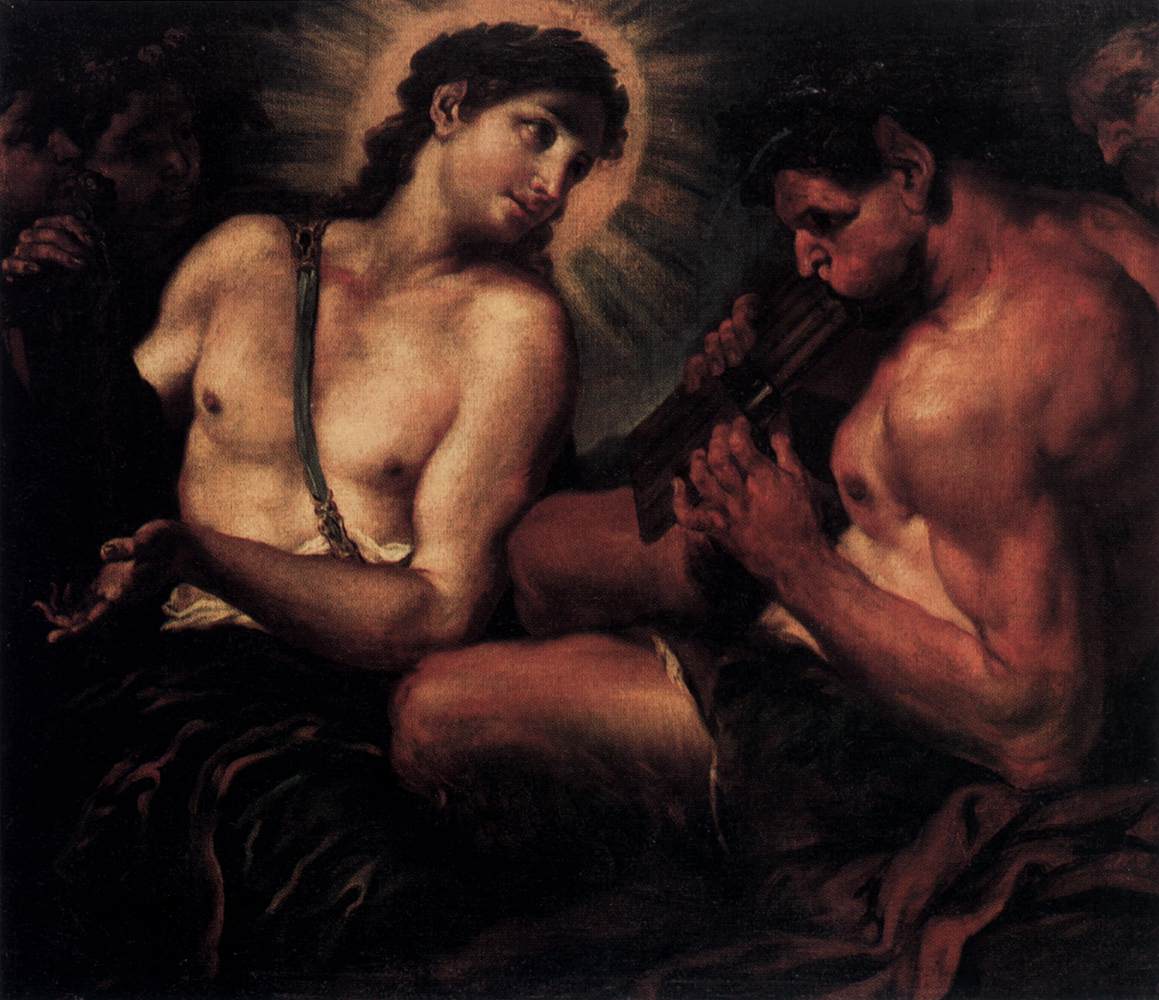Description
The painting "Apollo, Pan, and Marsyas" by the artist Johann Karl Loth is a striking work that masterfully combines mythological and artistic elements. With an original size of 97 x 117 cm, this work presents a complex and detailed composition that invites the viewer to immerse themselves in the magical world of Greek mythology.
Johann Karl Loth's artistic style is characterized by his ability to create dramatic and emotional atmospheres through the use of light and colour. In "Apollo, Pan, and Marsyas," Loth uses a rich and varied color palette to create a sense of movement and depth in the scene. The warm tones of the characters' bodies contrast with the cold tones of the landscape, creating a sense of tension and conflict.
The composition of the painting is equally impressive. The central figure of Apollo, with his lyre in hand and his defiant gaze, dominates the scene while Pan and Marsyas appear at his feet, in a submissive position. The arrangement of the characters and objects in the painting creates a sense of balance and harmony, despite the tension felt in the scene.
The story behind the painting is also fascinating. The scene represents the myth of Apollo and Marsyas, in which the god Apollo challenges the satyr Marsyas to a music contest. Despite Marsyas playing his flute exceptionally, Apollo wins the contest and decides to punish Marsyas for his daring. In Loth's painting, the tension and conflict between the characters can be clearly seen, making the scene even more shocking.
All in all, "Apollo, Pan, and Marsyas" is an impressive work of art that masterfully combines mythological and artistic elements. Johann Karl Loth's ability to create dramatic and emotional atmospheres, as well as his mastery of composition and colour, make this painting a unique and unforgettable work of art.

